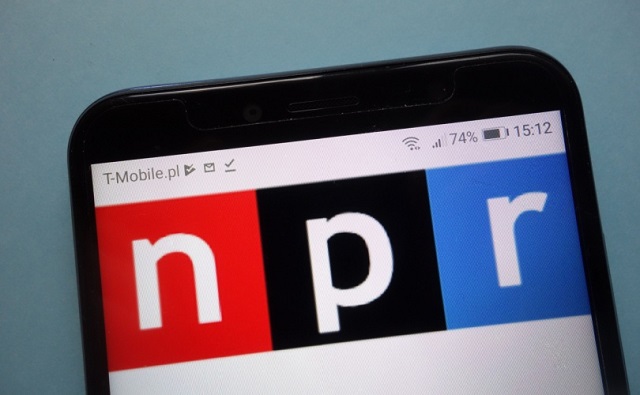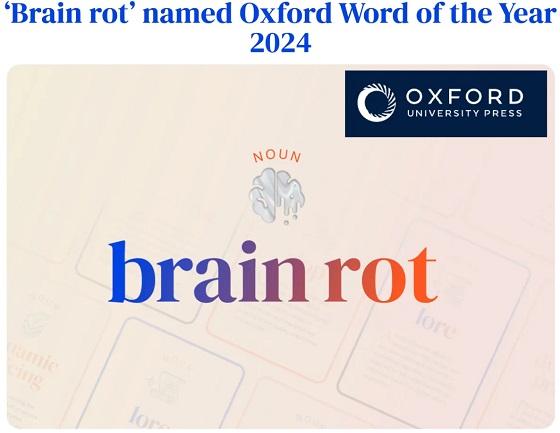Censorship Industrial Complex
NPR senior editor admits extreme bias in Russia collusion, Hunter Biden laptop, COVID coverage

From LifeSiteNews
‘There’s an unspoken consensus about the stories we should pursue and how they should be framed. … one story after another about instances of supposed racism, transphobia, signs of the climate apocalypse, Israel doing something bad, and the dire threat of Republican policies … ’
A longtime senior editor at National Public Radio (NPR) published a blistering critique of the government-funded “news” outlet’s extreme liberal bias, citing how NPR willfully “turned a blind eye” to the truth concerning alleged Russian collusion with the Trump campaign, Hunter Biden’s laptop, and the origin of COVID-19.
The Free Press’ explosive 3,500-word op-ed “I’ve Been at NPR for 25 Years. Here’s How We Lost America’s Trust.” by Uri Berliner confirms what many heartland Americans have known for decades: “An open-minded spirit no longer exists within NPR, and now, predictably, we don’t have an audience that reflects America.”
“Our news audience doesn’t come close to reflecting America,” wrote Berliner, who has worked at NPR for 25 years. “It’s overwhelmingly white and progressive, and clustered around coastal cities and college towns.”
Berliner paints a picture of an organization driven by DEI (Diversity, Equity, and Inclusion) that almost always “defaulted to ideological story lines,” and is damaged by “the absence of viewpoint diversity.”
“I looked at voter registration for our newsroom. In D.C., where NPR is headquartered and many of us live, I found 87 registered Democrats working in editorial positions and zero Republicans,” Berliner wrote. “None.”
When he presented his findings at an all-hands editorial staff meeting, suggesting “we had a diversity problem with a score of 87 Democrats and zero Republicans, the response wasn’t hostile. It was worse. It was met with profound indifference.”
Berliner draws attention to three enormous examples of NPR’s blindness regarding enormously important stories, a blindness that likely produced real-world consequences concerning the two most recent U.S. presidential elections and COVID-19 policies.
Russia collusion hoax
“Persistent rumors that the Trump campaign colluded with Russia over the election became the catnip that drove reporting,” Berliner said. “At NPR, we hitched our wagon to Trump’s most visible antagonist, Representative Adam Schiff.”
“Schiff, who was the top Democrat on the House Intelligence Committee, became NPR’s guiding hand, its ever-present muse,” he explained. “By my count, NPR hosts interviewed Schiff 25 times about Trump and Russia. During many of those conversations, Schiff alluded to purported evidence of collusion. The Schiff talking points became the drumbeat of NPR news reports.”
“But when the Mueller report found no credible evidence of collusion, NPR’s coverage was notably sparse,” Berliner confessed. “Russiagate quietly faded from our programming.”
“It is one thing to swing and miss on a major story,” Berliner allowed. “What’s worse is to pretend it never happened, to move on with no mea culpas, no self-reflection. Especially when you expect high standards of transparency from public figures and institutions but don’t practice those standards yourself. That’s what shatters trust and engenders cynicism about the media.”
Hunter Biden’s laptop ignored ‘because it could help Trump’
After the New York Post published a shocking report about the contents of Hunter Biden’s laptop just weeks before the 2020 election, “NPR turned a blind eye.”
NPR’s managing editor dismissed the important story, saying “we don’t want to waste the listeners’ and readers’ time on stories that are just pure distractions.”
“But it wasn’t a pure distraction, or a product of Russian disinformation, as dozens of former and current intelligence officials suggested,” Berliner wrote. “The laptop did belong to Hunter Biden. Its contents revealed his connection to the corrupt world of multimillion-dollar influence peddling and its possible implications for his father.”
“The laptop was newsworthy. But the timeless journalistic instinct of following a hot story lead was being squelched,” he continued. “During a meeting with colleagues, I listened as one of NPR’s best and most fair-minded journalists said it was good we weren’t following the laptop story because it could help Trump.”
NPR’s COVID-19 pandemic coverage ‘defaulted to ideological story lines’
Berliner described how NPR’s COVID-19 coverage fervently embraced a one-sided political narrative, promoting the notion that the virus came from a wild animal market in Wuhan while totally disregarding the possibility that it might have escaped from a Wuhan lab.
“The lab leak theory came in for rough treatment almost immediately, dismissed as racist or a right-wing conspiracy theory,” Berliner said. “Anthony Fauci and former NIH head Francis Collins, representing the public health establishment, were its most notable critics. And that was enough for NPR. We became fervent members of Team Natural Origin, even declaring that the lab leak had been debunked by scientists.
“Reporting on a possible lab leak soon became radioactive,” Berliner said. “But the lab leak hypothesis wouldn’t die.
“Over the course of the pandemic, a number of investigative journalists made compelling, if not conclusive, cases for the lab leak. But at NPR, we weren’t about to swivel or even tiptoe away from the insistence with which we backed the natural origin story,” Berliner wrote. “We didn’t budge when the Energy Department — the federal agency with the most expertise about laboratories and biological research — concluded, albeit with low confidence, that a lab leak was the most likely explanation for the emergence of the virus.”
“Instead, we introduced our coverage of that development on February 28, 2023, by asserting confidently that ‘the scientific evidence overwhelmingly points to a natural origin for the virus.’”
In all three cases, “politics were blotting out the curiosity and independence that ought to have been driving our work.”
DEI now trumps journalistic principles at NPR
“To truly understand how independent journalism suffered at NPR, you need to step inside the organization,” explained Berliner, who emphasized that the most damaging development at NPR over the last few years has been the absence of viewpoint diversity.
DEI considerations trumped journalistic principles. “Identity” groups within the organization — including Transgender People in Technology Throughout Public Media and NPR Pride (LGBTQIA employees at NPR) are now “given a seat at the table in determining the terms and vocabulary of our news coverage.”
“There’s an unspoken consensus about the stories we should pursue and how they should be framed. It’s frictionless — one story after another about instances of supposed racism, transphobia, signs of the climate apocalypse, Israel doing something bad, and the dire threat of Republican policies,” Berliner said. “It’s almost like an assembly line.”
Berliner concluded:
With declining ratings, sorry levels of trust, and an audience that has become less diverse over time, the trajectory for NPR is not promising. Two paths seem clear. We can keep doing what we’re doing, hoping it will all work out. Or we could start over, with the basic building blocks of journalism. We could face up to where we’ve gone wrong. News organizations don’t go in for that kind of reckoning. But there’s a good reason for NPR to be the first: we’re the ones with the word public in our name.
Alberta
Alberta bill would protect freedom of expression for doctors, nurses, other professionals

From LifeSiteNews
‘Peterson’s law,’ named for Canadian psychologist Jordan Peterson, was introduced by Alberta Premier Danielle Smith.
Alberta’s Conservative government introduced a new law that will set “clear expectations” for professional regulatory bodies to respect freedom of speech on social media and online for doctors, nurses, engineers, and other professionals.
The new law, named “Peterson’s law” after Canadian psychologist Jordan Peterson, who was canceled by his regulatory body, was introduced Thursday by Alberta Premier Danielle Smith.
“Professionals should never fear losing their license or career because of a social media post, an interview, or a personal opinion expressed on their own time,” Smith said in a press release sent to media and LifeSiteNews.
“Alberta’s government is restoring fairness and neutrality so regulators focus on competence and ethics, not policing beliefs. Every Albertan has the right to speak freely without ideological enforcement or intimidation, and this legislation makes that protection real.”
The law, known as Bill 13, the Regulated Professions Neutrality Act, will “set clear expectations for professional regulatory bodies to ensure professionals’ right to free expression is protected.”
According to the government, the new law will “Limit professional regulatory bodies from disciplining professionals for expressive off-duty conduct, except in specific circumstances such as threats of physical violence or a criminal conviction.”
It will also restrict mandatory training “unrelated to competence or ethics, such as diversity, equity, and inclusion training.”
Bill 13, once it becomes law, which is all but guaranteed as Smith’s United Conservative Party (UCP) holds a majority, will also “create principles of neutrality that prohibit professional regulatory bodies from assigning value, blame or different treatment to individuals based on personally held views or political beliefs.”
As reported by LifeSiteNews, Peterson has been embattled with the College of Psychologists of Ontario (CPO) after it mandated he undergo social media “training” to keep his license following posts he made on X, formerly Twitter, criticizing Trudeau and LGBT activists.
He recently noted how the CPO offered him a deal to “be bought,” in which the legal fees owed to them after losing his court challenge could be waived but only if he agreed to quit his job as a psychologist.
Early this year, LifeSiteNews reported that the CPO had selected Peterson’s “re-education coach” for having publicly opposed the LGBT agenda.
The Alberta government directly referenced Peterson’s (who is from Alberta originally) plight with the CPO, noting “the disciplinary proceedings against Dr. Jordan Peterson by the College of Psychologists of Ontario, demonstrate how regulatory bodies can extend their reach into personal expression rather than professional competence.”
“Similar cases involving nurses, engineers and other professionals revealed a growing pattern: individuals facing investigations, penalties or compulsory ideological training for off-duty expressive conduct. These incidents became a catalyst, confirming the need for clear legislative boundaries that protect free expression while preserving professional standards.”
Alberta Minister of Justice and Attorney General Mickey Amery said regarding Bill 13 that the new law makes that protection of professionals “real and holds professional regulatory bodies to a clear standard.”
Last year, Peterson formally announced his departure from Canada in favor of moving to the United States, saying his birth nation has become a “totalitarian hell hole.”
Censorship Industrial Complex
Move over Soviet Russia: UK Police Make 10,000 Arrests Over “Offensive” Online Speech

In a nation where 90 percent of crimes go unsolved, the real emergency seems to be someone being offensive online.
|
|
-

 Health17 hours ago
Health17 hours agoTens of thousands are dying on waiting lists following decades of media reluctance to debate healthcare
-

 Business2 days ago
Business2 days agoI Was Hired To Root Out Bias At NIH. The Nation’s Health Research Agency Is Still Sick
-

 Carbon Tax21 hours ago
Carbon Tax21 hours agoCarney fails to undo Trudeau’s devastating energy policies
-

 Business17 hours ago
Business17 hours agoBudget 2025: Ottawa Fakes a Pivot and Still Spends Like Trudeau
-

 Opinion12 hours ago
Opinion12 hours agoLandmark 2025 Study Says Near-Death Experiences Can’t Be Explained Away
-

 International1 day ago
International1 day agoCanada’s lost decade in foreign policy
-

 armed forces1 day ago
armed forces1 day agoCanada At Risk Of Losing Control Of Its Northern Territories
-

 Focal Points12 hours ago
Focal Points12 hours agoSTUDY: TikTok, Instagram, and YouTube Shorts Induce Measurable “Brain Rot”





